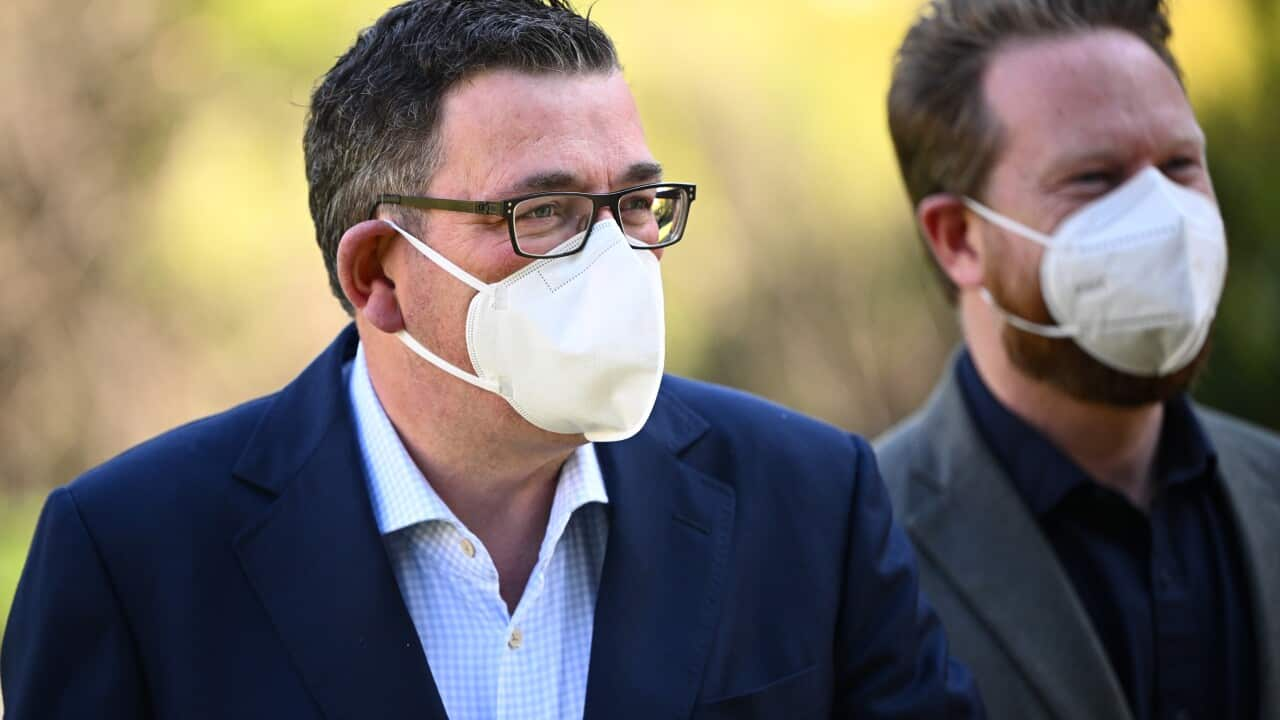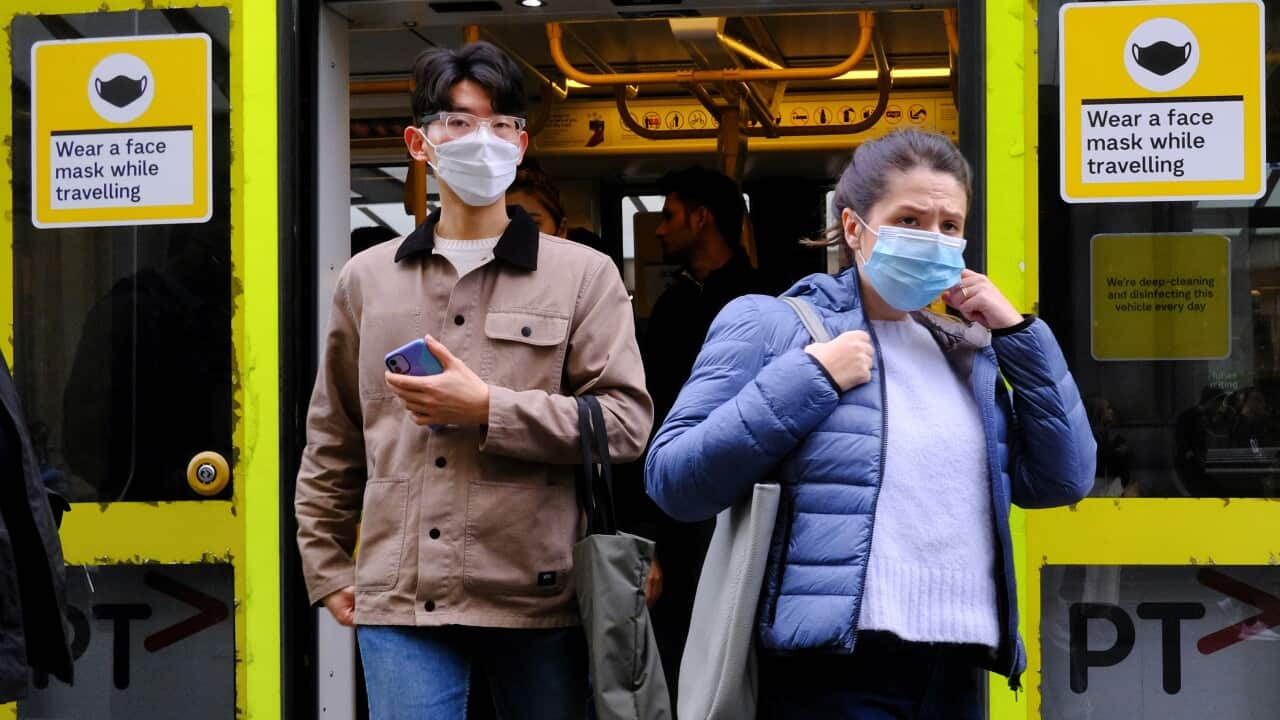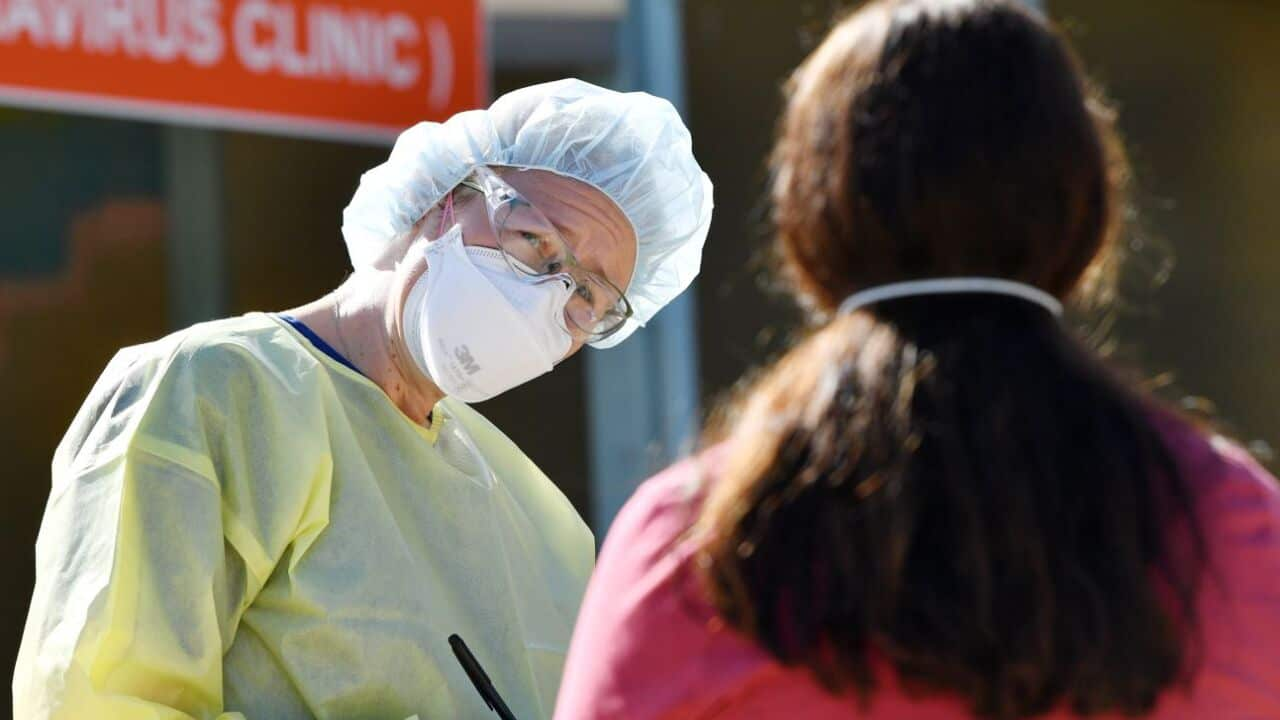Key Points
- Free N95 masks will be handed out in Victoria over the next few weeks
- It comes as the head of an Australian medical institute urges governments to consider reintroducing mask mandates.
The Victorian government has announced it will hand out free N95 over the next few weeks, in an effort to help reduce the transmission of COVID-19 and other respiratory illnesses.
From Tuesday, more than three million complimentary masks will be distributed to Victorians at the state's COVID-19 testing sites, through community organisations, disability service providers, and on public transport.
"Providing masks free of charge to those who need them most will help them protect themselves, their loved ones, and Victoria’s hardworking healthcare workers," Premier Daniel Andrews said in a statement.
It comes as the head of a high-profile Australian medical institute says federal, state, and territory governments adopted the wrong strategy in dealing with the emergence of the Omicron variant of COVID-19, and more people need to wear masks.
Burnet Institute director Brendan Crabb says the country faces a messaging problem and governments should admit they dropped the ball - and reconsider mask mandates to curb high COVID-19 case numbers.
"Australians love a mandate ... but only when we've bought into the reason for the mandate," Professor Crabb told the Medical Journal of Australia's InSight+ podcast.
"And with COVID we have not bought into that - that's why that mindset shift is so important.
"Until the prime minister and the premiers and chief ministers get up ... I don't think we will change the minds of Australians."
Professor Crabb says the Burnet Institute has conducted yet-to-be-released modelling showing mask mandates "could still save 14 per cent or so of the deaths, maybe 20 per cent of the cases by October".
Governments have been reluctant to reintroduce mandates, with some leaders instead opting to encourage the community to wear masks in certain settings.
Fear of a public backlash, which Professor Crabb acknowledges would probably happen, is likely responsible for their hesitancy.
He suggests mandates be used rarely but adds that requiring masks in some circumstances could encourage more people to wear them outside of those areas too.
"What we're worried about now with mask mandates is that the community will revolt - and that's probably true," Professor Crabb said.
"The reason for that is that we've not won them over. The community doesn't know what value there is in it.
"We know that mandating does work. There's good evidence to say that it makes a big difference. It's not a trigger you'd want to pull that often and it's certainly not something that needs to be in every circumstance."











